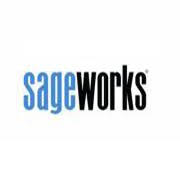Published
- 06:00 am

iPipeline – a leading provider of next-generation solutions and services to the life and pensions market – today announces that Mortgage Advice Bureau has adopted their protection sales support tool, PreQuo and their award-winning protection sourcing solution, SolutionBuilder.
PreQuo provides an immediate indicative cost of protection which can be used as an interactive protection sales aid. It allows advisers to quickly research protection options and provide them to the client in an instant, simultaneously assessing the client’s risk of needing that protection coverage.
SolutionBuilder is an intelligent protection research, quote and apply solution that allows advisers to easily compare all protection needs within a simplified and responsive user interface. Delivering a complete service, the solution uniquely supports all views of single and multi-benefit products so that advisers can quickly identify the right solution, based on their client’s specific needs and budget.
Mortgage Advice Bureau is overhauling its protection advice processes – to ensure all clients receive the right advice conversation at the right time. This requires a combination of great advisers, great processes and great technology. The last piece of the jigsaw, technology, is being delivered with the launch of PreQuo and SolutionBuilder. Integrated with Mortgage Advice Bureau’s CRM, Midas, advisers can experience a seamless, more efficient process.
Andy Walton, Protection Proposition Director at Mortgage Advice Bureau, commented “Protection is of vital importance to our customers and we are constantly looking at ways we can help our advisers demonstrate the risks associated with their customers not having cover, or sufficient cover, and present the most appropriate solution in a consistent and impactful way.
He added: “Working with iPipeline significantly enhances the adviser and customer experience, and also meets all our requirements in terms of digital solutions, as we look to widen choices for customers in terms of how they research, receive advice and transact.”
Paul Yates, Product Strategy Director, iPipeline commented: “Mortgage Advice Bureau is delivering a market leading protection proposition. We are pleased to support them in their aim to grow the protection market. During face-to-face meetings, advisers can have richer, more personalised protection conversations; visually demonstrate in an instant what cover can be achieved for what cost, helping clients understand their protection needs and helping deliver a faster, simpler fulfilment process. We are looking forward to seeing the benefit our technology will deliver to Mortgage Advice Bureau.”
Related News
- 05:00 am

Lee Murphy, the founder of cloud accounting software Pandle (www.pandle.co.uk), an accountant and tech entrepreneur, said: “Brexit is bearing down on us, whether it is next March or drifts off to later in the year, and there were some good measures to make sure the most flexible and successful sections of the economy are able to fire on all cylinders to offset any temporary shock to the economy from leaving.”
Welcome boosts for innovation and smaller businesses
Lee Murphy said: “There were quite a few announcements by the Chancellor of existing measures that help smaller businesses being extended, such the Annual Investment Allowance going up to £1million and Start-Up Loans continuing to 2021, that will help entrepreneurs.
“The cut in rates bills for retailers will also be a welcome move for small retailers to give them some respite against the move to online shopping, and the cut in the cost to small businesses of having apprentices is also very important. We need to be investing in a more skilled workforce for the future, and this helps small businesses provide take on and train our future talent, as in the additional investment in tech and help for getting skilled people
“The reliefs combined with good news around tax free allowances going up and the fuel duty being frozen, mean that the Budget offered many useful benefits for microbusinesses and entrepreneurs”.
The big losers from the Budget are contractors
Lee Murphy said: “Contractors were the big losers from the Budget as the new taxation regime, known as IR35, is to be imposed on them from April 2020. The Chancellor implied some would escape it as it will only apply to large and mid-sized businesses, but the reality is the vast majority of contractors work for such organisations, not small businesses.
“Effectively contractors, especially highly skilled IT ones, will be forced to join ‘umbrella companies’ and pay more tax and national insurance.”
Related News
- 01:00 am

CryptoCompare, the global cryptocurrency market data provider, today announces the launch of its mobile application, in response to demand from its crypto trading community.
The CryptoCompare app gives traders and investors the ability to monitor live bitcoin and altcoin pricing data, track cryptocurrency investments through multiple portfolios and get the latest news in the crypto space while on the move. Users of the mobile app can also stay informed with historical charts and technical analysis of all major exchanges and over 5,500 coins.
The mobile app provides the critical information necessary to make smarter investment decisions based on insights gained from CryptoCompare’s real-time, historical and blockchain data for each currency. The app’s coins list displays real-time data from over 130 exchanges and most cryptocurrencies. The advanced charting tools enable investors to identify coin price trends, apply technical analysis and spot trading patterns.
Users now have the ability to:
track their own customised list of coins and view trading volumes of the most popular coins
create and manage multiple portfolios with accurate statistics, price changes and profit/loss information
stay up to date with the latest financial market trends and make their own forecasts, as the app supports all major crypto news feeds
Charles Hayter, CEO and Founder of CryptoCompare, said: “We’re very excited to launch our mobile app to our community of more than 930,000 users. Our data is viewed between 20 and 180 million times per hour, peaking during times of higher market volatility. We continually invest in our technology and APIs to ensure our infrastructure remains robust and investors can access data as needed to execute trades on their investment portfolios. The launch of our mobile app is a natural next step, offering our users a choice in how they wish to interact with the crypto markets.”
CryptoCompare provides real-time, high-quality and reliable market and pricing data on 5,300+ coins and 240,000+ currency pairs globally, bridging the gap between the crypto asset and traditional financial markets. Acting as a gatekeeper for reliable, accurate and clean data, CryptoCompare adheres to rigorous standards to safeguard data integrity, normalising global data sources to ensure consistency and confidence in the market.
Related News
- 07:00 am

Solactive is pleased to announce the launch of its Solactive Broad Global Developed Government Bond TR EUR Index, a broad benchmark engineered to replicate the performance of the global developed sovereign local currency debt markets. With this Benchmark Index, Solactive is able to substantially extend its coverage in the sovereign debt space, allowing asset managers to gain exposure to the developed sovereign debt market which has a size of over 20.5 tn USD1. Initially designed as an underlying for various financial instruments, the index bears the opportunity to function as a starting universe for bespoke index solutions including regional and maturity subsets as well as alternative weighting approaches and ESG tilts.
The index universe is based on Solactive’s proprietary country classification schema, which has been adjustedto fit the specifics of the government debt markets. Eligible countries must either be classified as developedcountries by Solactive’s country classification schema or be a member of the Eurozone. Given the global scopeof this index, the portfolio is well-diversified across all major currencies and countries, therefore offering exposure to interest rates in all major regions of the world.
Timo Pfeiffer, Head of Research at Solactive, commented: “Government bonds remain a core component in every fixed income portfolio. As a consequence of the strong demand for multi-currency sovereign indices, Solactive decided to expand its coverage of government bonds to a global extent, resulting in our new Global Developed Government Bond Index. The index can be tailored specifically for our clients based on their strategic requirements and distinct country focuses. Furthermore, we are taking the opportunity to release seven additional regional sub-indices of our global index that cover dedicated regions such as the Nordics or the Eurozone.”
The index components are weighted according to their respective market values in proportion to the aggregated market value of all index components in the index.
Related News
- 07:00 am

Today, Startupbootcamp launches its FinTech Accelerator program in Dubai to support the city in its bid to become a world leader in financial services innovation and technology.
Over the next three years and in partnership with Dubai International Financial Centre (DIFC), Visa and HSBC, Startupbootcamp will accelerate 40 startups working in a range of fields impacting financial services innovation, such as artificial and machine intelligence, distributed ledger technologies and digital and open banking. The program will be open to startups from the MENA region as well as from around the world.
Dubai’s strong FinTech ambitions are focused on becoming the key financial hub serving a unique and rapidly developing region. Startupbootcamp, together with the partners, will support this vision by taking FinTech startups through a focused three-month growth program located in FinTech Hive at DIFC to address all critical areas of their business and prepare operations for future scaling. Partners and mentors of the program provide startups with an unparalleled level of highly curated access to resources, insights, technology, and expertise.
The program provides all the tools to take a startup from its initial launch to developing a highly scalable business with solid revenue growth. The program will provide startups with support from Startupbootcamp’s global network of entrepreneurs, investors and industry corporations, free co-working space, €15,000 to cover living expenses and over €450,000 worth of partner deals.
Startupbootcamp has invested in and accelerated more than 200 FinTech and InsurTech startups to date across programs in London, New York, Singapore, Amsterdam, Mexico City, Mumbai and Hartford, Connecticut, enriching and developing their FinTech ecosystems. Startupbootcamp is no stranger to innovation in Dubai after successfully launching its Smart Cities accelerator program in 2017, partnered with Dubai Silicon Oasis, du, Visa, Dubai Chamber, Rochester Institute of Technology Dubai, Smart Dubai and Orange Business Services.
The Startupbootcamp FinTech Dubai team will be hosting a series of ‘FastTrack’ events in different cities across the Middle East as well as international cities such as New Delhi, London, Singapore, New York and more over the next two months, in order to give startups the chance to present their ideas and to find out more about the program.
Todd OBrien, CEO of MENA, Startupbootcamp, said: “We are extremely excited to begin this journey that will see some of the best financial innovations from around the world come to enrich the financial ecosystem in Dubai and the region.”
Raja Al Mazrouei, Executive Vice President - FinTech Hive at DIFC, said: “Building on the success of our existing accelerator programmes that target growth-stage FinTech companies, we are excited to partner with Startupbootcamp on this latest initiative that provides a growth platform for early-stage startups. The partnership will contribute significantly to developing the regional FinTech and Venture Capital ecosystem, and promoting entrepreneurship in line with the UAE 2021 Vision.”
Shahebaz Khan, Visa’s General Manager for the UAE and Innovation Lead for MENA, commented: “The future of digital payments will be shaped through collaboration and we look forward to working with our startup partners to transform the payments landscape and support economic modernization efforts to the benefit of consumers, merchants and banks alike. We are proud to partner on the FinTech startup accelerator program to help foster an entrepreneurial ecosystem where innovators from across the region can thrive and to enable a smart economy powered by secure, innovative digital payment solutions.”
HSBC’s CIO of Middle East, North Africa and Turkey, Ghinwa Baradhi, commented, “HSBC UAE is pleased to tie-up with Startupbootcamp to foster innovation and entrepreneurship through mentoring of young technology companies. We look forward to helping FinTech startups shape their products at scale and expand their markets, while providing more established entrepreneurs with strategic guidance on market opportunities and trends. Our aim is to explore options for collaboration to build innovative solutions which shape a better future for our customers and colleagues.”
Related News
- 08:00 am

Related News
- 08:00 am

A majority of bankers expect their financial institutions to use third-party vendors or a combination of advisors and third-party vendors to help them implement the Current Expected Credit Loss model, or CECL, according to an informal poll released by Sageworks and MST.
During a CECL Panel webinar hosted by the firms, 315 bankers were asked how their institutions plan to implement CECL, the Financial Accounting Standards Board’s new requirements for accounting for credit losses. Thirty-seven percent of those polled said they plan to use models developed through advisory services and third-party vendors/products, and 33 percent said they plan to use an external product alone. In other words, more than two-thirds of those polled will rely on external models rather than internally prepared models.
Only 15 percent plan to rely solely on their own resources, and another 13 percent will use a combination of in-house and advisory prepared models. None of those polled planned to completely outsource the CECL implementation to an advisory services firm.

A majority of bankers expect their financial institutions to use third-party vendors or a combination of advisors and third-party vendors to help them implement the Current Expected Credit Loss model, or CECL, according to an informal poll released by Sageworks and MST.
During a CECL Panel webinar hosted by the firms, 315 bankers were asked how their institutions plan to implement CECL, the Financial Accounting Standards Board’s new requirements for accounting for credit losses. Thirty-seven percent of those polled said they plan to use models developed through advisory services and third-party vendors/products, and 33 percent said they plan to use an external product alone. In other words, more than two-thirds of those polled will rely on external models rather than internally prepared models.
Only 15 percent plan to rely solely on their own resources, and another 13 percent will use a combination of in-house and advisory prepared models. None of those polled planned to completely outsource the CECL implementation to an advisory services firm.
Related News
- 05:00 am

A new white paper outlines lessons learned in banking the unbanked and creating a path to prosperity.
Financial inclusion is more than connecting people to a bank account. It is helping level the playing field for small farmers by providing access to buyers, pricing and speedier payments. It is replacing unwieldy paper voucher systems in humanitarian crises with preloaded digital cards for food and supplies. It is offering tools to help people manage income streams and plan for their future. It is helping small and micro merchants expand their business by using their purchasing history with suppliers to assess their credit-worthiness.
Access to these and other digital financial tools is a critical element of financial inclusion. Mobile networks reach nearly 90 percent of the population in developing nations today, making digital financial access ever more feasible. But, access is meaningless if people do not use the service. Today, about one in five bank or mobile money accounts is inactive.
That conundrum is the topic of a recent white paper by Mastercard, “The Next Frontier in Financial Inclusion: Moving Beyond Access to Usage.”
The paper is the first in a series by Mastercard’s Global Prepaid team that focuses on topics critical to building robust, commercially viable approaches to financial inclusion. For Mastercard, that means developing products that are actively used and that benefit consumers. Helping populations connect to networks that help them save, expand their business and become financially secure means that government and corporate partners do good not only for the individuals they serve, but for local economies as well.
To achieve these goals, we must put the consumer and his or her needs front and center with well-designed products. We must also build an infrastructure that enables the consumer’s journey to financial health.
The papers in the series build on lessons we are learning from programs that have connected more than 330 million financially excluded consumers to the formal financial system. From our perspective, there are three key components necessary to moving the newly included from access to usage.
- Focus human-centered design on customer needs and cultural considerations. Our market research in 16 focus markets across five regions shows, for example, that urban residents are more commercially engaged, have greater access to financial services and are more familiar with their use. Rural residents, in contrast, rely more on cash and are more risk-averse. Two-thirds, for example, were afraid of losing control of their money or savings if they didn’t have physical control of them. These insights can help product design teams tailor tools to different audiences.
- Build financial knowledge and change behavior. Knowledge and trust are major hurdles in any financial transaction. Access to mobile accounts is nearly universal in the Middle East, for example, yet use of mobile financial services is still rare, mainly because of a lack of trust. To overcome this, financial service providers in Egypt created a text messaging option to open a dialogue and answer key questions about finances and financial pain points. Growing knowledge and trust led to a 5-8 percent rise in monthly transactions.
- Build robust ecosystems to enable scale. New models for deploying technology, along with new payment flows and channels, are key to expansion. In Pakistan, for example, a partnership between the national bank, two of Pakistan’s leading telecommunications players and Mastercard led to progress in expanding digital payments. In the spirit of cooperation, the partners recognized the value in allowing a consumer to pay at any accepting merchant, regardless of provider. This payment interoperability was critical to improving the overall level of acceptance. By addressing consumer and merchant needs collaboratively, the service providers were able to reach a far larger population more quickly.
Partnerships such as that in Pakistan will be imperative to continued success. In subsequent white papers, we will provide additional details on developing robust payment systems and robust partnerships.
There are opportunities beyond the payments industry for actors with an interest in the benefits of digitization to partner and help drive the growth of payments. Stakeholders across different industries, from agriculture to telecommunications to consumer goods, all have important roles to play in the extension of digital payments to the base of the pyramid. These nontraditional stakeholders, who may not have previously recognized payments as an opportunity to expand into new markets or to reduce costs, have considerable incentives to adopt digital payments.
By engaging with a broad and diverse group of strategic partners we can tackle this enormous challenge and help move hundreds of millions of people toward financial health and inclusive growth.
Dan Salazar is director of product operations for new consumers at Mastercard. He manages Mastercard’s pre-paid humanitarian products and tracks progress toward reaching the company’s financial inclusion goals. He is currently developing a series of papers to share insights from Mastercard’s financial inclusion programs and partnerships. He previously led acceptance strategy and engagement efforts at Mastercard focused on financial inclusion.
Related News

Sam Smith
CEO at finnCap
We welcomed the extension of the entrepreneurs’ tax relief announced at last year’s Autumn Budget, and are pleased to see no further changes in this see more
- 08:00 am

Nordea expands its digital payment offering by adding Google Pay, a mobile payment solution for Android phones. Nordea customers in all Nordic countries can now use Google Pay at contactless payment terminals and in apps and online stores.
- We want to make everyday life easier for our customers. Mobile payment is a very convenient way to make everyday purchases without carrying your wallet with you, at all times. Mobile payment is easy, accessible and secure – and that’s what our customers want, says Topi Manner, Head of Personal Banking at Nordea.
The launch of Google Pay follows the launches of several digital payment solutions in recent time. Customers that uses Android devices can now also enjoy making mobile payments that are fast, easy and secure.
- For Nordea, it’s all about giving customers access to the same modern and secure ways of making payments regardless of the device they choose to use, says Topi Manner.
All Nordea’s consumer cards and Nordea First Card can be added to Google Pay.
- As the frontrunner of the digital transformation of banking, it’s important to offer a complete range of digital payment solutions to all customers. No other Nordic bank can match our broad range of digital payment solutions on all Nordic markets, says Erik Zingmark, Head of Transaction Banking at Nordea.
Google Pay also brings great benefits for corporations since corporate cards can be added. Regardless if employees use plastic cards or Google Pay, all purchases end up on the same invoice. It therefore creates less administration and makes life easier for employees when travelling or making expenses on behalf of the company.









